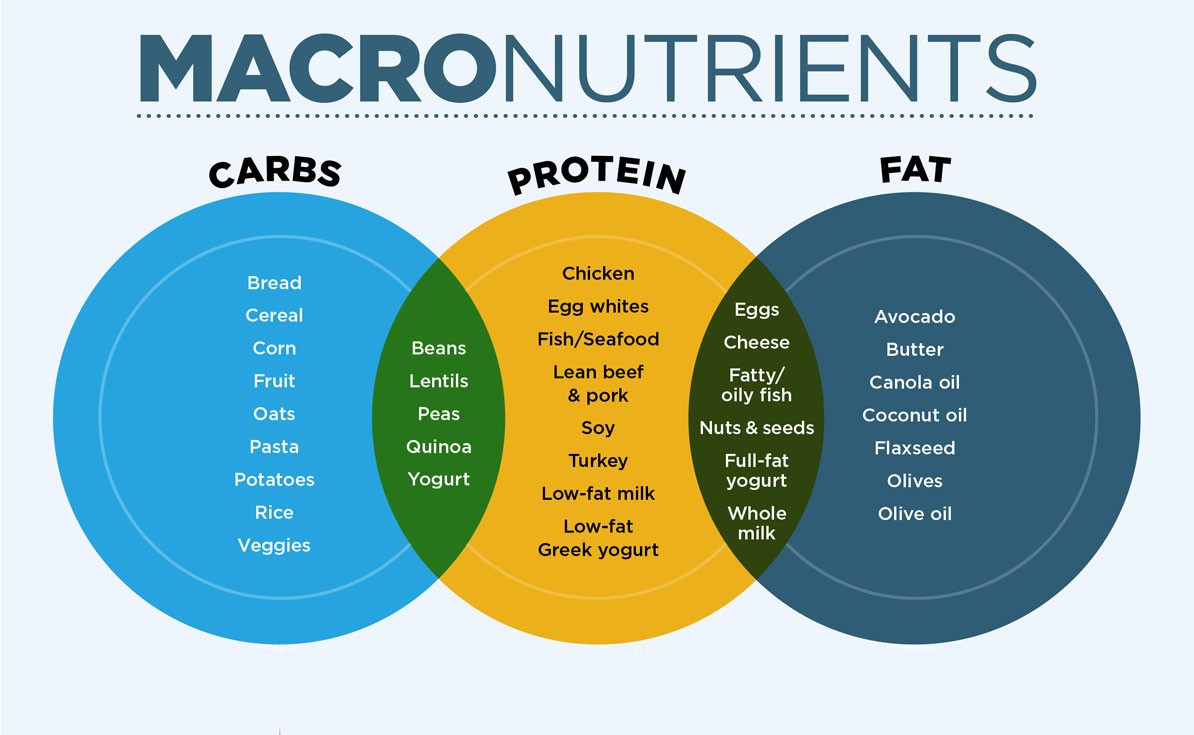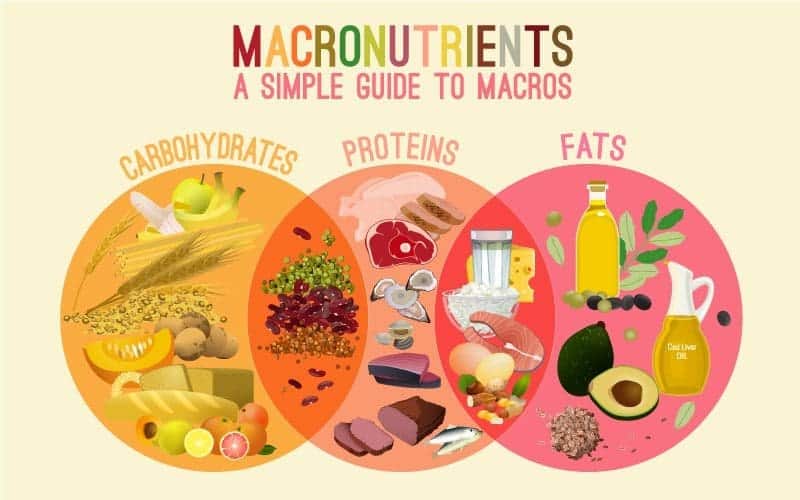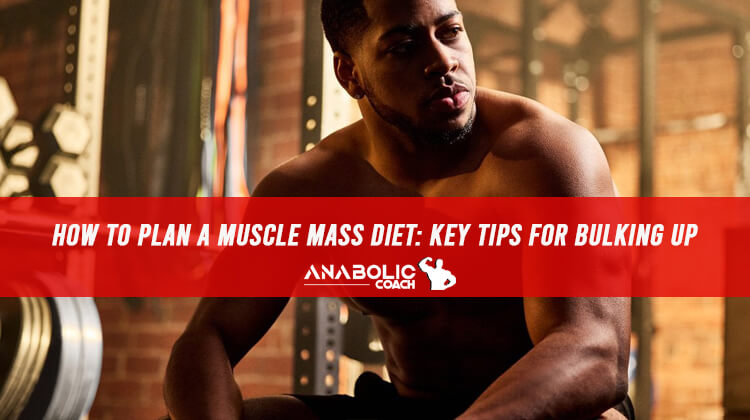It’s amazing how many people don’t give as much attention to their nutrition and diet in today’s world. But what’s even more surprising is how many fitness enthusiasts and even bodybuilders are less concerned about their diet and still think that all they really need to build muscle mass is a great training program consisting of HIIT cardio and strength training sessions.
While a well-structured training program with cardio and progressive overloads on your weight training routines will definitely help in promoting muscle hypertrophy, you still need energy fuel to be able to perform the sessions that make up your training program.
To this end, you will need a muscle mass diet plan that is tailor-made to provide you with the energy fuel needed to enable you to consistently execute the different exercise routines that make up your training program.
This guide is for you, if you are honest with yourself and admit that you have little or no knowledge about how to start off a muscle building diet plan.
So stay tuned, as you will learn about the three (3) macronutrients essential to your bulking dietary plan, your daily macronutrient needs, and also the best timing for your daily meals to optimize your energy requirements for every training day.
Macronutrients for Muscle Growth
First off, as mentioned earlier there are three (3) primary macronutrients for muscle growth, namely; carbohydrates or carbs, fats, and protein. Each of these three macronutrients play an important role in your body and are absolutely vital for muscle building.
Here’s what you should know about these macronutrients.
#1. Carbs
There are basically two types of carbs that provide your body with its main source of energy fuel and these are simple and complex carbs. Whenever you consume simple carbs, you will raise your body’s blood sugar and provide it with calories sufficient for short-term, intense activities and workouts.
Simple carbs can be derived from foods like soda, candy, sugar (brown or white), syrups, milk products, and fruits. On the other hand, while simple carbs provide short-term energy fuel, complex carbs are the exact opposite as they will provide your body with energy fuel for the long-haul.
Complex carbs can be derived from foods like starchy veggies (sweet potatoes, peas or corn), and whole grains (pasta, brown rice or bread), . With complex carbs, your body will be supplied with enough energy fuel to sustain your daily workout sessions enabling you to exert yourself more in training.
You should focus on consuming more complex carbs than simple carbs, as the former will ensure that your body doesn’t resort to using your protein stores as energy fuel which could be detrimental to your muscle building efforts.
#2. Fats
When it comes to fats, you should know that there are two basic types, namely healthy fats derived from foods like seeds, nuts, fatty fish, eggs, avocados, and olive oil, and unhealthy fats which are trans and saturated fats that can be found in fried foods, margarine, baked products (pies and biscuits), vegetable shortening, and frozen pizza for example.
When planning your foods for muscle building, you should spend more time getting healthy fats and less time on unhealthy fats.
#3. Protein
Protein is necessary for the repair of damaged muscle tissue and for promoting hypertrophy. What’s more, protein serves as a secondary source of energy fuel when your carbohydrate reserves are depleted.
However, if you want to sustain your muscle gains, you should be mindful of the amount of carbohydrates you consume and ensure that they are large enough to provide your body with the necessary energy levels during your training. This way your body will not tap into your protein stores for energy during your intense workout sessions.
Ensure that you maintain a high-protein diet for muscle building. You can include foods like eggs, lentils, Greek yogurt, cottage cheese, beans, lean beef, tofu, quinoa, fish and almonds to your daily protein intake for muscle gain.

Muscle Building Diet for Beginners: Your Daily Macronutrient Needs
Now that you know the three main macronutrients needed in your healthy diet for muscle growth, you need to understand how to calculate the amount of macronutrients you need to ensure optimal skeletal muscle growth.
But first, before you attempt to calculate your total daily macronutrient requirement for bulking, you need to know your body weight.
Next, it is important to note that the figures provided in this guide are not sacrosanct and while many people would agree, there would be others that beg to differ.
However, all the figures highlighted here are simply a useful guide on how to calculate your daily macronutrient needs for building muscle, especially as a beginner.
Your Daily Macronutrient Need:
Carbs
2.5 grams/pound of bodyweight
Fats
0.25 grams/pound of bodyweight
Protein
1 to 1.6 grams/pound of bodyweight
Assuming you are an aspiring male bodybuilder weighing in at about 220 pounds and you wish to embark on a muscle building diet plan, your daily macronutrient needs would look like this:
Carbs
Daily carb intake (grams of carbs/day) = actual body weight x carbs grams/pound of bodyweight
220 pounds x 2.5 grams/pound of bodyweight = 550 grams of carbs/day
Fats
Daily fats intake (grams of fats/day) = actual body weight x fats grams/pound of bodyweight
220 pounds x 0.25 grams/pound of bodyweight = 55 grams of fats/day
Protein
Daily protein intake (grams of protein/day) = actual bodyweight x protein grams/pound of bodyweight
220 pounds x 1 to 1.6 grams/pounds of bodyweight = 220 to 342 grams of protein/day
To get your total daily calories for muscle growth, you will convert your daily intake in grams of carbs, fats and protein to calories for carbs, fats, and protein.
The calculation is as follows:
Carbs
4 calories/gram
4 x 550 = 2,200 calories
Fats
9 calories/gram
9 x 55 = 495 calories
Protein
4 calories/gram
4 x 220 = 880 calories
Or 4 x 342 = 1,368 calories
The total daily calories for a 220 pound man looking to bulk up is anywhere from 3,575 to 4,063 calories.

Meal Prep for Muscle Gain
Your meal prep for muscle gain is just as important as the food you eat on a day to day basis. When it comes to your meal prep and timing, you should plan for between five (5) to eight (8) small meals daily to be eaten at intervals of two (2) or three (3) hours.
As part of your muscle gain meal plan, it is important to consume a meal one hour before you start your training. This will provide you with the energy needed to perform your sessions.
You should also have another meal after your training routine – this will help to provide your body with the nutrients needed to stimulate the repair of microtears in your skeletal muscles incurred during your workout.
Conclusion
And that’s that! This simple muscle building diet plan for beginners is just to get you on the right path without much complications. However, there are still a number of things to consider like the food supplements you can take on a daily basis.
If you want more information on this and many other aspects of meal planning for your bulking program, you can chat with an IFBB PRO for free today.


